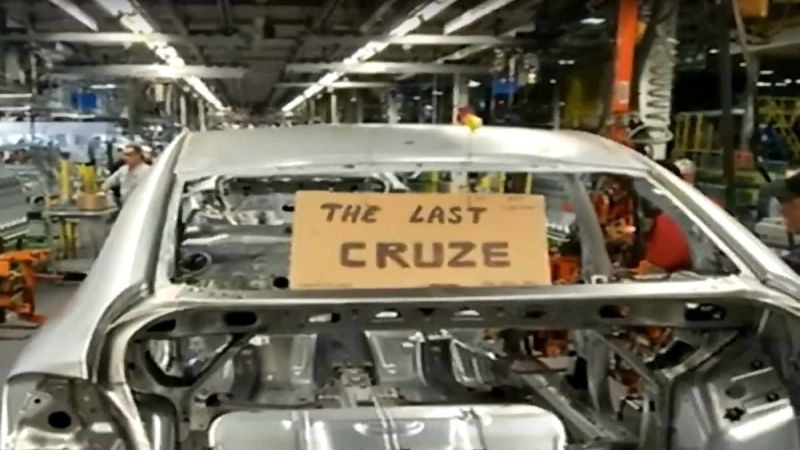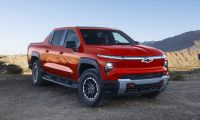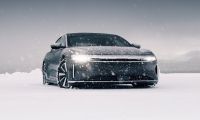As General Motors winds down the production of its car plants in North America, one milestone of note is the last Chevy Cruze rolling off the assembly line. The Chevy Cruze was the last affordable sedan in America that had a diesel engine option.
The Lordstown plant is being left "unallocated" by GM as it kills off a handful more car models. As GM planned, the plants will not be left vacant for a period of time..
Affordable diesel models are now as rare as hens' teeth in the U.S. as those automakers still interested in diesel vehicles cope with making the dirty diesels comply with clean air requirements. Chevy will still import a handful of Cruze hatchbacks from Mexico for while, but we have no way of knowing how many of the cars will have a diesel option.
Those looking to find a slower, more polluting family vehicle with a higher cost for fuel that uses more petroleum can still find it in a handful of crossover models. For a detailed comparison of the Equinox diesel vs. the Honda CR-V, feel free to click here. However, if you still think diesel cars are "30% more efficient" or that they "emit less CO2 than gas cars" you may want to hold off. Keep your imaginings intact and pretend the diesel myths are real.
The last new affordable car model promised to the U.S. market was the Mazda6 diesel, which Mazda teased (or threatened) the U.S. market with before deciding to cancel the plan. The most popular diesel cars sold here were, of course, the dirty Volkswagens that polluted at up to 40 times the allowable limit before the massive lawsuit settlements and arrests of Volkswagen employees.
Related Story: Chevy Cruze Diesel vs. Honda Civic Gas - Petroleum Use, CO2 and Performance
Set Torque News as Preferred Source on Google












Comments
While the Cruze diesel option
Permalink
While the Cruze diesel option is ending - yes this is true - the rest of the facts don't match up as well. This story? opinion piece? editorial? diesel slam? presents a very distorted and inaccurate view of diesel vehicles for consumers in the US. It does not mention that there are a number of affordable mid-size pickup trucks with diesel engines (Chevy Colorado, GMC Canyon), nor the addition of NEW diesel fuel engine offerings in the most popular vehicles in the USA for 40 years - full size pickup trucks the Ford F-150 along with the Chevy Silverado 1500 and Ram Ecodiesel.
Finally- the reporting on Mazda's diesel plans is incomplete here- stay tuned for more. Visit the Mazda webpage for what is coming soon in affordable crossover diesel options in the US.
Like an old vinyl record
Permalink
Like an old vinyl record stuck in a groove, the author (JG) keeps repeating the meaningless "... polluted at up to 40 times the allowable limit". Other pronouncements are also becoming less persuasive.
Biased article. You fail to
Permalink
Biased article. You fail to provide objective reporting; for example, you report the Diesel scandal for two auto manufacturers, Audi and Volkswagen, but fail to mention they recalled these vehicles successfully and brought the cars into compliance with US emissions standards. This is great for people willing to do their homework because the vehicles have lost a great majority of their value due to flawed perceptions. This brings buyers an opportunity to capitalize on Diesel engines, which have become more affordable than other used gasoline vehicles in their class. Furthermore, Diesel engines are arguably more environmentally friendly because they A) generally have better fuel mileage due to their high power outputs in the low RPMs and B) last far longer than their gasoline engine counterparts. Abolishing Diesel further stimulates car manufacturing giants by making disposable vehicles that need significant maintenance to continue running after 200,000 miles. Diesel engines would be the ideal long-term option for those wanting an environmentally feasible solution while reaping the benefits of a quality engine that is far more reliable than gasoline engines.